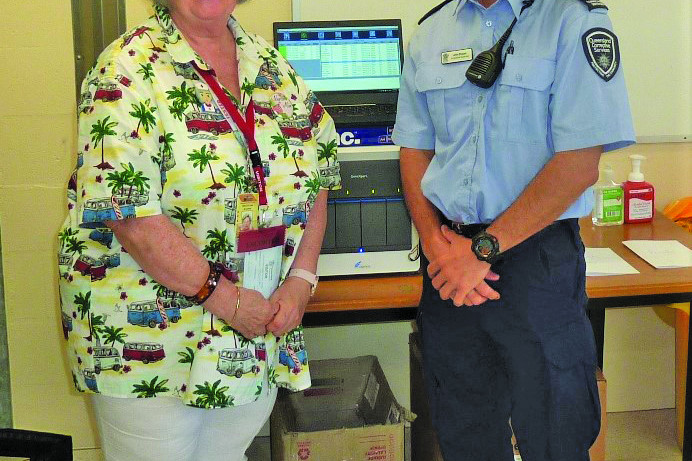Community & Business
18 November, 2021
Prison partnership aims to give Hepatitis C the boot
HEPATITUS C has nearly been eliminated at the Lotus Glen Correctional Centre thanks to a program between the prison and The Kombi Clinic aimed at eliminating Hepatitis C amongst inmates.

Testing undertaken last week of the general prisoner population was met with an exceptional response from prisoners.
The elimination program has led to the prison being the first in Australia to achieve near-eradication of the potentially deadly disease.
The significance of the project was recognised by the International Corrections and Prisons Association, the peak industry body for corrections worldwide.
Lotus Glen Correctional Centre general manager Chief Superintendent Gabby Payne said the project had wide-ranging benefits for officers and prisoners and improved safety for the wider community.
“The response from prisoners volunteering to participate in the program has been outstanding,” Ch. Supt. Payne said.
“Prisons are recognised worldwide as high-risk locations for blood-borne viruses which present real risks to officers, other prisoners and to the safety of the community upon the prisoner’s release.
“This joint project between QCS and The Kombi Clinic will benefit the long-term health and wellbeing of all FNQ communities.”
Kombi Clinic clinical nurse Mim O’Flynn said the project team at Cairns and Hinterland Hospital and Health Service was excited to be a part of the treatment program, made possible by the introduction of new medication to effectively treat Hepatitis C.
“Working closely with Lotus Glen officers, the team did an excellent job in educating prisoners about the disease, encouraging them to get screened and managing their treatment,” she said.
“Lotus Glen Correctional Centre should also be acknowledged for their eff orts in educating and supporting the prisoner population.
“The significance of this project cannot be underestimated from a public health perspective. Left untreated, Hepatitis C can lead to liver damage and failure. It is spread easily through sharing needles and exposure to blood containing the virus,” Ms O’Flynn added.


